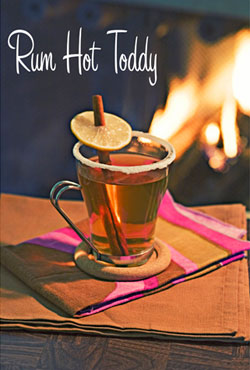 Many of us have heard that old adage from the Corinthians: "When I was a child I spoke as a child, thought as a child, and reasoned as a child; but when I became a man I put away childish things." Well, when I was a child of sixteen I liked to drink beer, smoke pot and listen to
Led Zeppelin at top volume.
Many of us have heard that old adage from the Corinthians: "When I was a child I spoke as a child, thought as a child, and reasoned as a child; but when I became a man I put away childish things." Well, when I was a child of sixteen I liked to drink beer, smoke pot and listen to
Led Zeppelin at top volume.
Admit it – you did too.
Eventually, much to my dismay, I was required to become an adult and to reason as one. I am not saying that I have achieved any great levels of thought; but I did stop listening to Seventies arena rock. I thought I was supposed to. Just like I thought I was supposed to acquire some decent furniture, invest in an IRA, and make sure my hemline never again drifted above my thighs....that kind of crap.
I even brought myself to marry someone who liked “Smooth Jazz.” I found myself spending many evenings at the second-rate jazz clubs on Bleecker Street, trying to look at least mildly entertained as I listened to some tepid trio, while drinking even more tepid wine. There were things about adulthood I found incredibly disappointing.
I know I am not the only person who feels like this. New York City is full of adults who still crave the thrill and energy of the head-banger music of their childhoods, but no longer want to have to resort to banging their heads. In other words: We no longer want to fight for our right to party.

 A coffee farmer shared with me that the most injury prone job picking coffee involves climbing. When one hand is holding the tree and the other a machete--what are you left with to swat the bugs?
A coffee farmer shared with me that the most injury prone job picking coffee involves climbing. When one hand is holding the tree and the other a machete--what are you left with to swat the bugs?  Because our holiday parties tend to revolve around themes and menus of yesterday (I blame my house, it’s terribly 1950s to the extreme, and no, I wouldn’t change a thing), I wanted to experiment with a category of drinks that are probably better suited to Patagonia rather than Sunny Southern California: hot cocktails.
Because our holiday parties tend to revolve around themes and menus of yesterday (I blame my house, it’s terribly 1950s to the extreme, and no, I wouldn’t change a thing), I wanted to experiment with a category of drinks that are probably better suited to Patagonia rather than Sunny Southern California: hot cocktails.
 Picture this: you’re enjoying a wonderful outdoor party. Great food and libations are flowing freely, laughter spills through the air, things are good. You notice one of your guests in need of a refresher, so you run back to the kitchen for another round.
Picture this: you’re enjoying a wonderful outdoor party. Great food and libations are flowing freely, laughter spills through the air, things are good. You notice one of your guests in need of a refresher, so you run back to the kitchen for another round. 